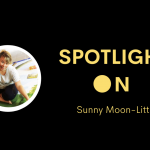“Hannah, make sure the dads in your life feel special this Father’s Day.”
For a myriad of reasons – death, estrangement, divorce, fertility struggles – getting sent personalised marketing emails with subject lines like this, by every company you are signed up to, can be difficult.
It’s email personalisation for profit, instead of for the person.
However, a few years ago, someone had the brilliant and thoughtful idea to allow people to opt-out of calendar moments (like Mother’s Day or Valentine’s Day) which could be triggering or upsetting. I initially noticed opt-out emails coming from Bloom & Wild in 2019, and I loved them for a variety of reasons.

The thing I loved most was that this idea probably came from a very open, vulnerable conversation or comment. And that seemingly small comment, which would only be raised in a business that makes its people feel safe enough to discuss things that don’t feel right, created better marketing and a stronger brand, more connected to its customers. They could have easily taken note and kept on with the status quo, but they developed it into something brilliant.
This could be possible because the brand knew itself, its customers, and its consumers. They knew that its product served big calendar moments, they recognised that their marketing was heavy-handed during those times, and could therefore be scaled back.
There were two great ways that this helped:
- It grew brand love:
They came across as thoughtful, empathetic, and forward-thinking - It protected their email list and therefore profit: Allowing people to opt-out of holiday comms for occasions in which they wouldn’t buy your product anyway is a great retention move. It protects the brand from a deluge of unsubscribes from those upset by the subject line, or from those who found the comms irrelevant.
It was brilliant.
But I say this in the past tense because this year’s opt-out moments have felt different.
The myriad of emails I received in the run-up to the launches of both Father’s and Mother’s Day felt, for lack of a better word, intense.

The original, thoughtful idea was meant to help people avoid triggering moments, but the sheer volume received meant that the opt-out emails have started to work the opposite way and have become triggering themselves. Email marketers have jumped on the brandwagon, putting best practice ahead of what’s best for the customer. They were no longer thinking about the communications landscape in which their emails would be received, and so it felt like the opt-out movement had lost all authenticity.
As a taster, here are some of the brands that I’ve read about sending opt-out emails this year. And each brand represents a possible booby-trap for the recipient, ready to detonate and trigger a whole host of emotions:
- Treatwell
- Open Table
- Waitrose
- Very.co.uk
- SpaceNK
- Wilko…
So what should brands do about it?
It’s difficult to kill or retire a brilliant idea, but if Bloom & Wild, or any similar brand, would like to portray themselves as thoughtful marketers, then they must keep thinking.
Evolving the idea
For me, the next step would be for these brands to move to a generic email, sent quarterly, prompting individuals to update their email marketing preferences for a variety of calendar moments, so people can submit their opt-outs all at once. Even better, brands could ask for preferences when you sign up.
To drive greater inclusivity, and empathy, brands could invite their recipients to submit requests for additional moments to opt-out of. Moments which are heavily marketed, but might not be as apparent, like back-to-school comms for grieving parents, or those struggling to conceive.

A step further to build greater trust and give customers more control of the narrative, would be if brands allowed people to set their own key calendar moments and showcase a shift to proactivity and co-creation. Customers could choose moments where they would like a reminder from the brand, this could range from something as simple as a birthday, a colleague’s work anniversary, or a cultural event not often celebrated in the UK, like Midsummer.
Evolving the core idea in these small ways would help put the person back in the centre of personalisation.
In future, I suspect tech will play more of a role in protecting people from triggering messages, with your browser or email provider shielding you from all manner of things…but we’ll have to wait and see.
However, if there was one message I’d like to give to Bloom & Wild, it would be that retiring a brilliant idea doesn’t make it any less brilliant and it’s brave to let it go, but allowing an idea to grow old disgracefully could really do more harm than good.
By Hannah Thomson



